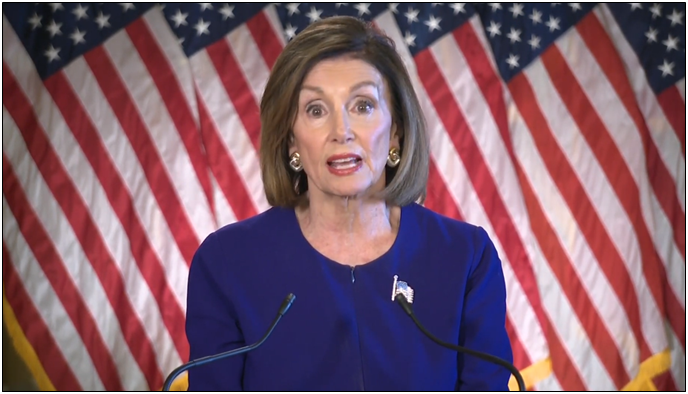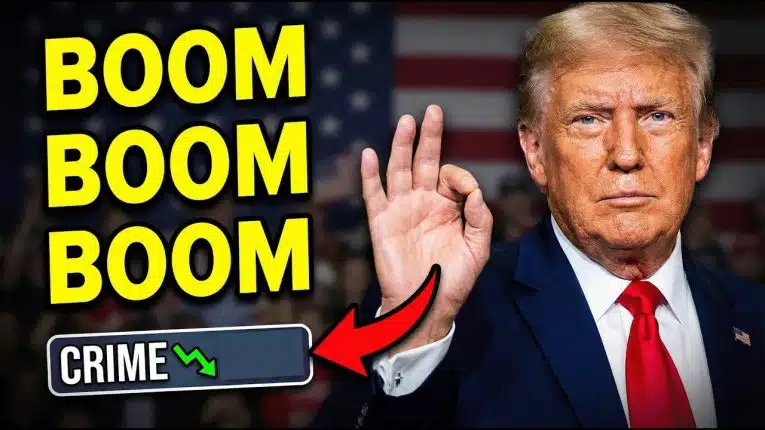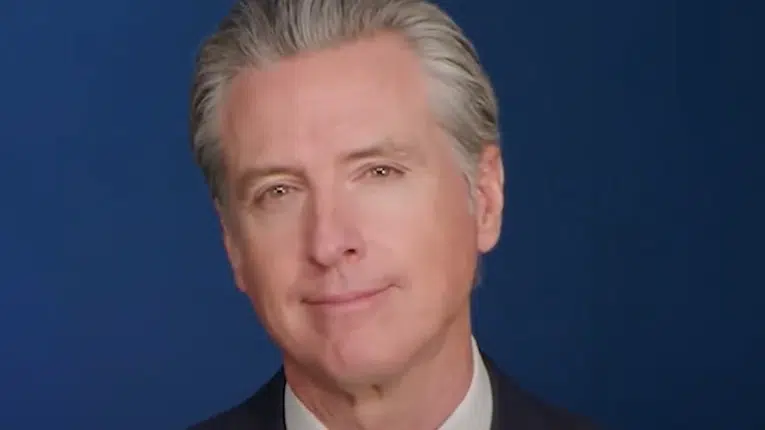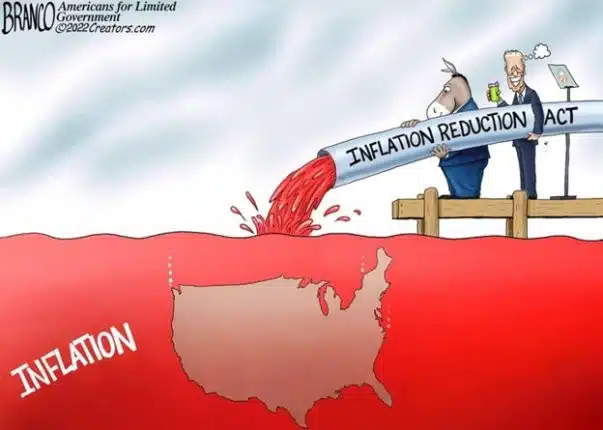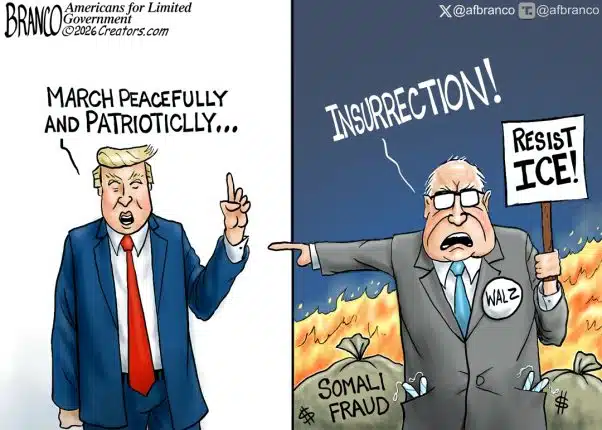“The President, Vice President and all civil Officers of the United States, shall be removed from Office on Impeachment for, and Conviction of, Treason, Bribery, or other high Crimes and Misdemeanors.”
That is Article II, Section 4 of the Federal Constitution, outlining what a case for impeachment is supposed to consist of, namely, crimes. Therefore, without a crime there cannot be an impeachment.
And yet, that is precisely what the Articles of Impeachment House Democrats have now put to the floor of the House of Representatives do, outlining vague charges of “abuse of power” and “obstruction of Congress.”
Neither of these are crimes, articulable under any law passed by Congress and signed by the President. They can be found nowhere in the criminal code. They are not bribery. And they are not treason.
Under the first article of impeachment, the supposed “abuse of power,” which the resolution fails to cite which section of the U.S. Code that is being violated and is thereby not a crime, House Democrats point to President Donald Trump’s decision to temporarily hold up military assistance to Ukraine in July that was ultimately released on Sept. 11, and his encouraging of prosecutors in Ukraine to take another look at the Burisma natural gas firm for a potential corruption investigation after former Vice President Joe Biden had a Ukrainian prosecutor fired in 2016 reportedly to protect the company from prosecution, which his son happened to serve on the Board of Directors of.
Despite not producing a single witness who could testify with direct knowledge of such a scheme, Democrats accuse President Trump, without evidence, of leveraging the military and security assistance to Ukraine in exchange for these investigations. None of the diplomats and White House officials who testified, however, witnessed either the President ordering or communicating to Ukraine such an arrangement. One of them says he “presumed” that’s what the President was leveraging the aid when that diplomat communicated to a Ukrainian official, but says when he later spoke to the President he said the opposite and that there was no quid pro quo.
But, even if that had been the arrangement, that would not be a crime either, since we’re still talking about two things the President has the power to do: Reconsider military assistance to Ukraine in the conduct of his powers over foreign affairs pending a policy decision, and to urge Ukraine to investigate corruption, even if those being investigated might be well-connected Americans.
Ukraine had alleged that in addition to local potential violations by Burisma, U.S. laws against money laundering might have been violated as well. The U.S. and Ukraine have a mutual legal assistance treaty, allowing law enforcement agencies to cooperate on such matters, even if the criminal conduct involves high ranking officials.
Democrats’ — who profess that no one is above the law — principal argument against investigating the Bidens or any companies they might have been involved in, is that it would benefit Trump, since as the incumbent, will be the Republican nominee for President in 2020. That therefore the Bidens are above the law whilst a Republican is in office. But the interests of justice and the rule of law are not suspended in election years, even for Democrats.
Whether an investigation of Burisma is legitimate or not rises or falls on the merits of the conduct by the company alone, not what long-standing political players were hired to shield such inquiries. Such matters are settled in courts of law, whether here in the U.S. or in Ukraine, as the case may be. Congress has no power to settle such a dispute, and certainly not on concocted impeachment charges for non-crimes.
The second, laughable charge of obstruction of Congress is principally connected to the refusal of certain senior White House and administration officials to testify before the House impeachment panels. Again, this is not a crime either, it is a dispute between the executive and legislative branches over executive privilege. That is, the doctrine that executive branch officials who provide direct advice and counsel to President cannot later be called to testify, pointing to the need for confidentiality, particularly of matters pertaining to military and diplomatic secrecy, as well as matters of executive consideration that would national interests be better served being kept private.
Normally, such disputes over what Congress has the power to subpoena are settled by the judicial branch and federal courts.
Congress’ power to subpoena records and witnesses is an implied power under Article I’s grant of legislative powers. And the President’s power of executive privilege, to keep the deliberations of the executive branch sealed, is an implied power under Article II’s grant of executive powers.
Therefore, asserting executive privilege is not a crime, and no more so than Congress’ power to subpoena documents and witnesses, neither of which are articulated in the Constitution.
When there is a disagreement over whether a document or a witness can be subpoenaed by Congress, the proper form is to take it federal court for potential adjudication.
Gerald Ford once famously argued that “high crimes and misdemeanors” are “whatever a majority of the House of Representatives considers them to be at a moment in history.”
And yet that is not what the framers had in mind at all. In fact, they anticipated that after being removed from office for a crime (and only a crime), that the removed President would then face prosecution.
In the Federalist No. 69, Alexander Hamilton wrote on the impeachment provision, “The President of the United States would be liable to be impeached, tried, and, upon conviction of treason, bribery, or other high crimes or misdemeanors, removed from office; and would afterwards be liable to prosecution and punishment in the ordinary course of law.”
Meaning if it is not conduct that would otherwise be punishable by law, then it cannot be punishable by impeachment, constitutionally.
When the Justice Department, on behalf of the President, brings prosecutions against defendants, it must always articulate the crime that has been committed. Warrants cannot issue except upon a showing of probable cause. Every person is entitled to trial by jury and the right to an adequate defense and the right to confront accusers and call witnesses. These and other protections are articulated in the Bill of Rights, and particularly the Fourth, Fifth and Sixth Amendments to the Constitution.
Yet, almost none of these protections have been applied in the Democrat’s impeachment inquisition. No crime has been articulated under federal law. Records including phone records of the President’s attorneys, members of Congress and even a journalist were subpoenaed and granted without any judicial order or warrant and showing of probable cause. The President was not allowed to call any witnesses in the House proceedings, have any legal counsel present to ask questions and the primary accuser was never even called to testify and his name is being kept anonymous under dubious legal grounds.
No wonder Senate Majority Leader Mitch McConnell has already declared, “The case is so darn weak coming from the House… We know how it’s going to end. There’s no chance the president’s going to be removed from office.”
This is the first impeachment of a sitting President in U.S. history ever to lack either a crime or any due process. And Democrats expect Republicans to join with them in a bipartisan undertaking necessary to overturn the results of the 2016 election and remove the President from office when there is no basis under the Constitution for doing so? Don’t hold your breath.
Robert Romano is the Vice President of Public Policy at Americans for Limited Government.


